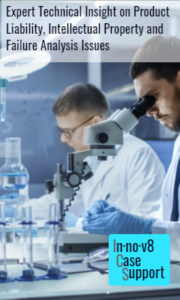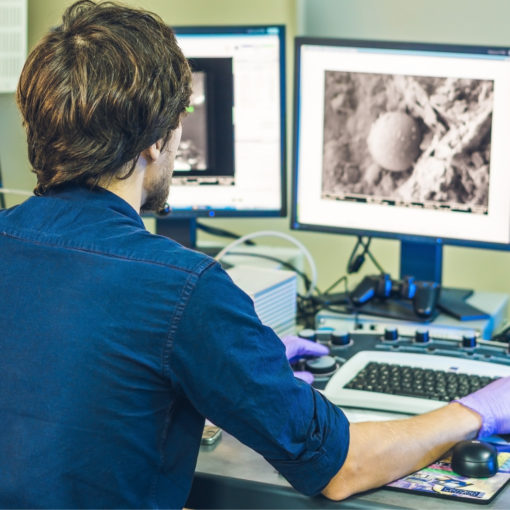 Common Communication Shortcomings in Tech Experts
Common Communication Shortcomings in Tech Experts
Many lawyers and business leaders understand important rules of communication such as: speak clearly, clarify instructions, consider your audience, etc. However, the experts who they rely on to address technical issues in chemistry, materials, and engineering often lack those important communication skills. These experts have focused on technical courses at the core of their discipline and learned to communicate well with their peers. Conversations among these experts might sound like technobabble to the average person. To complicate matters, some of these experts enjoy showing off their knowledge to people who are not trained in their area of expertise. They may continue to use big words and jargon that they would use when speaking with other experts. The unfortunate result of this behavior is that communication of key points is often delayed, diminished, or lost.
Communication is a cornerstone to success, whether it be for understanding a product failure or an intellectual property case; therefore, finding an expert who not only has solid experience in his or her chosen field, but one who can objectively and concisely communicate this information to a variety of audiences is extremely important.
Balancing Expertise With Clarity
Consider these hypothetical accounts of three people speaking about the same case of a failure of a plastic part left in a hot car:
The Lay Person: I stopped at a restaurant for lunch and when I returned to the car, the DVD had turned into a potato chip!
Expert Witness/Poor Communicator: The infra-red electromagnetic radiation from the sun was absorbed by the polymeric molecules of the digital video disc and by the carbon black filled dash covering, causing the intensity of their thermal vibrations to increase. When the vibrations became sufficient and the material exceeded the glass transition temperature of the thermoplastic polymer, the material transitioned from a hard glassy polymer to a highly viscous viscoelastic mass. The thermal- and flow-induced stresses that were introduced during the disc manufacturing process overcame the viscosity of the resin and the polymer underwent viscous flow, which resulted in distortion from its optimal shape (and on, and on, and on…..).
Expert Witness/Concise Communicator: My analysis shows that the DVD disc in question was constructed of two layers of acrylic plastic, or pMMA, adhered together with a glue. pMMA has a glass transition temperature (Tg) of about 105C. Tg describes the softening point for the plastic. The material behaves like a rigid glass at temperatures below Tg and will soften and flow as the temperature rises above Tg. When the disc was left in the car on a hot, sunny day, the temperature of the disc was raised above the Tg, the pMMA plastic softened and underwent viscous flow, distorting the shape of the disc.
While all three accounts contain accuracy, only the two experts offer technical insight into what happened. However, the first expert communicates in jargon and technical terms that are meaningful only to another expert in the area. In most cases, this type of communication leaves the audience confused with more questions than information. In the case of the concise communicator, it is clear that he or she has investigated the issue, has an understanding of what happened, and can translate the technical findings into words that are meaningful to all audiences. This ability to solve a technical problem and to effectively communicate the issue adds value to your expert and your project.
Top Expert Witnesses Use Concise Communication
When looking at the concise communicator in the example above, certain traits show why this expert will add value:
- Inquisitiveness. A concise communicator will ask questions so that he or she has a firm understanding of the problem in question. If the problem and the conditions around it are not well understood, it is not possible to prepare an educated opinion on what happened. In the example of the distorted DVD above, it matters greatly what polymer was used in its construction. It also matters where the car was parked when the problem occurred. For example, was the car parked in the noontime sun in the Arizona summer or was it parked in a snow covered lot during a Minnesota winter? Was the failure purely aesthetic or did it compromise the performance? Was the part subjected to chemicals or stresses that could affect it? The more the expert knows about the issue, the better they will be able to address it.
- Technical Understanding. An expert witness needs to understand the science or technology behind the problem and use that understanding, and possibly additional research or experimentation, to reach an objective explanation or analysis. The stronger the technical understanding, the more likely an expert will identify critical insights on the project. A broad experience will be helpful in establishing connections between various factors that may be relevant to the problem.
- Translation Skills. We usually think of translators as go-betweens for different languages. In this case, the translation occurs between highly technical English and the more common everyday English. The key here is for the expert to explain the problem, cause, and if appropriate, the solution clearly and objectively in words understood by people who are not experts in the field. The conclusions should be supported with relevant technical details as needed to establish the credibility of the expert, but presented in understandable terms.

Translation skills may be the most difficult to find in an expert witness or subject matter expert. It goes against the expert’s urge to use big words. Further, it is easier for the expert to communicate in the highly technical jargon they are used to than to translate that knowledge into everyday English. In some cases, the experts do not know the subject well enough to do this translation. Some of the most renowned scientists are those who understand their topic so well that they can discuss it at very technical levels with minute details to other experts, but who can also translate the subject matter into a simpler form and answer a variety of questions so that even a child could grasp some insight. Nobel Laureate Roald Hoffmann, for example, could explain complex chemical equations and calculations in ways that everyone could understand, regardless of their education or training.
Communication Equals Value
In the end, a technical expert’s most important role is to provide objective technical expertise and opinions. A strong background in the relevant technology is critical to fulfill that role, but if the expert cannot clearly and concisely communicate his or her knowledge to the audience, then the time and money invested with the expert are lost. If you are looking for an expert witness or subject matter expert in chemistry, polymers, or materials who can translate scientific depth into strong and understandable insights, call us at Innov8 Chem, 267-503-3692.

